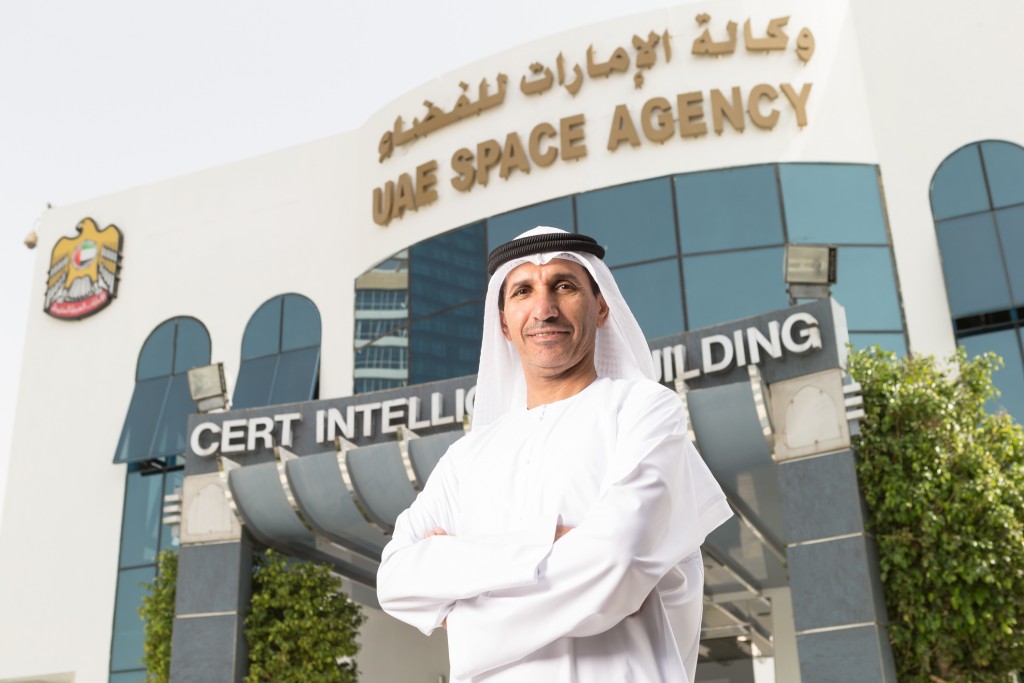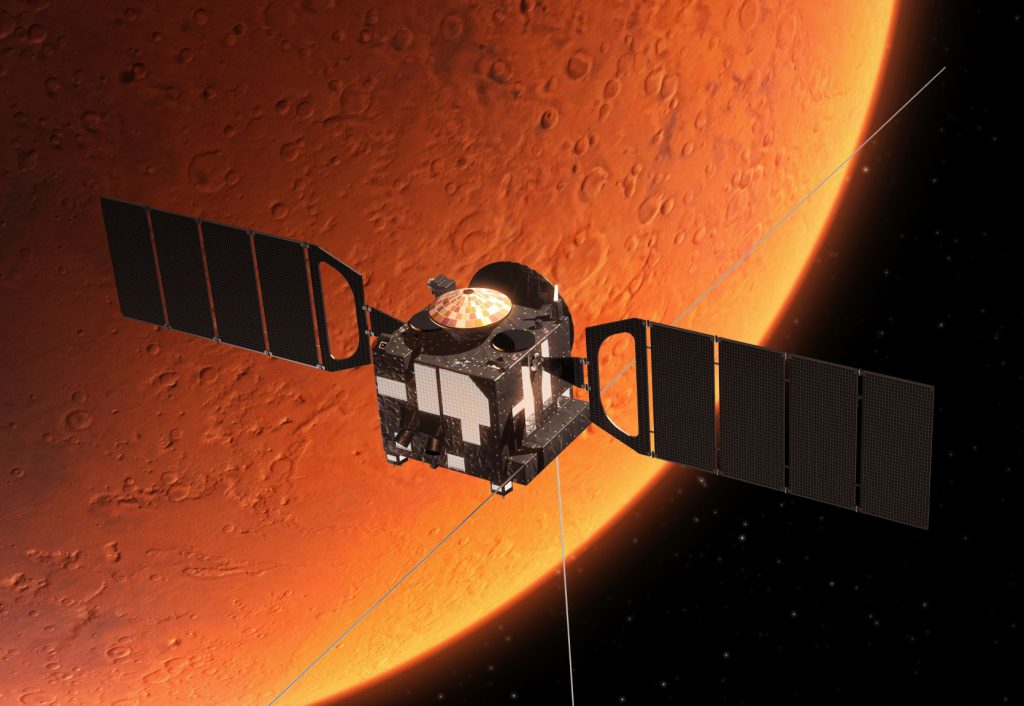The United Arab Emirates’ space agency may only be 10 months old, but the promising organization already has big plans to position the country as a regional leader in space exploration.
Created last year by presidential decree, the newly-created National Space Agency aims to regulate and pioneer the regional space technology industry by planning an ambitious “Hope Probe” mission to Mars by 2020 and support existing Earth-orbiting satellite programs.
In a land that has long been heavily dependent on oil, space technology and exploration is one of several sectors the Arab nation is venturing into as a way to broaden and diversify its economy.
Dr. Mohammed Nasser Al Ahbabi, Director General of the UAE Space Agency, gives up an in-depth look at the country’s promising programs and its potential pave the way for innovation strategies across the science and technology sector within the country.
Elan: Can you describe the newly launched framework for the UAE’s National Space Agency?
Dr. Mohammed Nasser Al Ahbabi: The UAE Space Agency’s strategic plan for the space sector consists of four main objectives that include developing and guiding a world-class national space sector that serves the country’s highest interests, promoting scientific research, attracting national resources for space scientists and technology pioneers and building international partnerships.
In addition, the UAE Space Agency’s plan contains a number of initiatives, programs and activities that the Agency team will implement. Firstly, the UAE Space Agency will work to establish a Space Research Center with an AED 100 million investment where the center will act as an incubator for space research and innovation at the federal level.
Also, over the course of 2015, the UAE Space Agency will select 15 gifted students as an academic delegation to embark on the study of science and technology in order to contribute to the UAE’s journey toward space.

Elan: Can you tell us more about the goal and vision of the National Space Agency and the research it will undertake?
MNA: The UAE Space Agency has indicated that the strategic plan for the space sector is part of an overall vision of “proudly crafting the future of the United Arab Emirates as a leader in space, and to inspire the future generations for the benefit of the nation and humankind.”
This goal backed by its mission in organizing and guiding the space sector, by contributing to the national economy and sustainable development, preparing generations of highly skilled professionals, and developing space research, space programs, and strategic partnerships in the field of space.
Elan: Can you tell us more about the Hope probe, the UAE’s promising mission to Mars by 2021?
MNA: Earlier this year, the UAE revealed the scientific and technical details and timeline of the UAE Hope Mars Probe which will be launched to explore Mars and is scheduled to arrive in 2021, coinciding with the 50th anniversary of the UAE’s founding. The probe will be 100% Emirati made in cooperation with prestigious scientific and research centers around the world.
The UAE project to explore Mars is the first Arab Muslim project of its kind, and will demonstrate that the Arab world is capable of enriching civilization and human knowledge. The Hope Probe will also prove that enthusiasm, confidence and ambition leads to success, despite the hardships the Arab world is facing. It is also real model to be followed by other nations, and inspire the people of the Middle East.
The Mars Probe project will stand as a symbol of hope and as a source of inspiration for new generations to look for a future filled with opportunity.
Elan: How will this venture influence the country’s technology and education sectors?
MNA: The UAE Government see a national space program as playing a big part in the drive to diversify the Emirati economy, creating highly skilled and high paying technology jobs, and by inference, a highly skilled and high-tech workforce.
The space sector is significantly helping the economy and creating sustainability and diversification – providing citizens with essential space based services such as. satellite communications.
It will be vital that our schools, universities and colleges provide world class education in maths, science, physics and space studies. Some universities in the UAE already have courses that will prepare and educate our youth to become pioneers of the space sector. We expect more courses and labs to be developed and more institutions to commit to this exciting field.
Elan: Why is it important for the UAE to take on space exploration?
MNA: Space exploration and investment in the space industry is a long term goal of the United Arab Emirates. Over the past ten years, the UAE has invested some USD 5.4 billion in the space industry.
Our newly announced initiatives are ambitious, bold, and exciting, but they are a natural development of a much older vision that reaches back to when the founding father of the UAE Sheikh Zayed bin Sultan Al Nahyan visited the US Apollo Program in the 1970s.
The importance of space exploration for the UAE is that it both marks the profound progress that we’ve made in line with the inspirational vision of our founders, while at the same time space offers an extraordinary and unique path for the economic, scientific, and developmental future and prosperity of our nation.
Elan:What impact will the UAE Space Agency have on the country’s workforce?
MNA: The UAE Space Agency will play a key role in building the human capital necessary for the UAE and its citizens to be world leaders in the 21st century and beyond.
Our initiatives aim to build upon our already substantial presence in the space technology industry in the short term, establish the UAE as a world leader in space exploration in the medium term with projects like the Middle East’s first Space Research Center, while in the long term identifying, encouraging, and training our youth to be future leaders in the crucial fields of Science, Technology, Engineering, and Mathematics (STEM.)
Elan: What does the new space initiative mean for the Middle East as a whole as a regional pioneer?
MNA: The decision to name the UAE’s Mars Probe “Hope” in Arabic was an auspicious one, because we believe that the UAE Space Program can be a symbol of hope for the entire region.
While our endeavours in space will continue to bring tangible benefits to the UAE in terms of both monetary and human capital, the exploration of space and the improvement of humanity’s knowledge of our universe is one of the most powerful gifts that the UAE Space Program can bring to the UAE, the region, and the world.
Despite the challenges that the region faces, we hope that our team of extraordinarily bright and talented Emiratis leading the way in the exploration of space will inspire the entire Middle East to enjoy a scientific renaissance that can restore the golden age of Arabic and Islamic scientific discovery.






























Comments